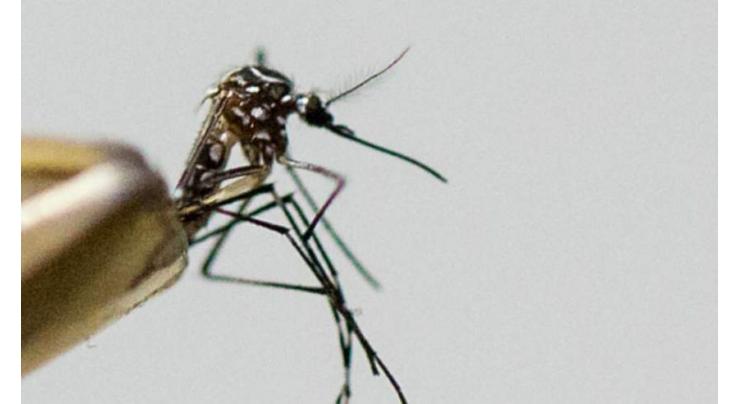
Singapore Wages War On Mosquitoes As Suspected Zika Cases Reach 50
Faizan Hashmi Published August 29, 2016 | 07:57 PM

SINGAPORE, (APP - UrduPoint / Pakistan Point News - 29th August, 2016) - Singapore clinics Monday reported more Zika infections, bringing the suspected total to 50, as mosquito-fighting teams saturated the scene of the outbreak. Inspectors from the National Environment Agency checking for mosquito-breeding sites visited homes in the eastern Aljunied Crescent district where 41 cases -- mostly foreign workers at a condominium construction project -- have been confirmed. Nearly all have recovered but nine more suspected cases of Zika virus infection -- both citizens and foreign workers -- were reported Monday by two community clinics, local media said. These cases were also in Aljunied.
"It's quite frightening because I thought Zika is something happening on the other side of the world. But now it's right here in my neighbourhood," customer service manager Josephine Kwan, who lives in the affected suburb, told AFP. Zika causes only mild symptoms for most people, such as fever and a rash, and has been detected in 58 countries particularly Brazil. But in pregnant women, it can cause microcephaly, a deformation in which babies are born with abnormally small brains and heads.
Singapore, despite the highest health care standards in Southeast Asia, is a densely populated tropical island with frequent rain.
Mosquitoes breed in stagnant water that collects in construction sites, open space and homes. It is also one of Asia's cleanest cities but has a chronic problem with dengue fever, which is spread by the same Aedes mosquito that carries the Zika virus. Singapore's first reported case of Zika in May involved a man who had visited Sao Paulo in Brazil earlier in the year. But all of the latest cases involved local transmission. The Straits Times newspaper quoted local doctor Tan Thai Keng, whose surgery reported four of the latest cases, as saying more women were visiting the clinic as news of the outbreak spread. They included a pregnant 32-year-old. "She wanted to find out whether she had the virus in her blood or not.
So we took her blood here and sent it to the lab at Tan Tock Seng," he said, referring to the main national hospital for communicable diseases. Neighbouring countries took steps to prevent the spread of the disease from Singapore.
Related Topics
Recent Stories

Realme C53 Price Slash: High-Tech Meets High Style at New Low Price!

CPEC has given new boost to economic, cultural relations b/w Pakistan, China: PM

Imran Khan's wife Bushra Bibi's medical tests conducted on court orders

Pakistan requesting multi-billion-dollar loan programme from IMF: Finance Minist ..

Passing out parade of cadets at PMA Kakul

Govt bringing reforms in energy, revenue collection, SOEs: Aurangzeb

Pakistan, New Zealand to face off in 2nd T20I match at Rawalpindi today

Currency Rate In Pakistan - Dollar, Euro, Pound, Riyal Rates On 20 April 2024

Today Gold Rate in Pakistan 20 April 2024

Tennis: ATP Barcelona Open results - 1st update

Swiatek's perfect 10 in Stuttgart as Vondrousova stuns Sabalenka

Arandu's roads closed due to flooding
More Stories From World
-
AI a 'fundamental change in the news ecosystem': expert
8 minutes ago -
Civilians killed as Ukraine, Russia trade strikes
8 minutes ago -
China says AUKUS risks nuclear proliferation in Pacific
8 minutes ago -
Emphatic Verstappen enjoys 'incredible' pole after China sprint win
18 minutes ago -
Chinese swimmers failed doping tests ahead of Tokyo Olympics: NY Times
18 minutes ago -
O'Callaghan upstages Olympic champion Titmus as McKeown challenges world record
38 minutes ago
-
Hearings end in 'Panama Papers' money-laundering trial
58 minutes ago -
Ambassador Hashmi speaks at 41st International Kite Festival in Weifang, Shandong province
1 hour ago -
Verstappen takes pole for Chinese GP after sprint win
1 hour ago -
Dominant Verstappen takes pole for Chinese GP after sprint victory
2 hours ago -
Formula One: Chinese Grand Prix grid
2 hours ago -
Two Mexican mayoral candidates reported killed in single day
3 hours ago